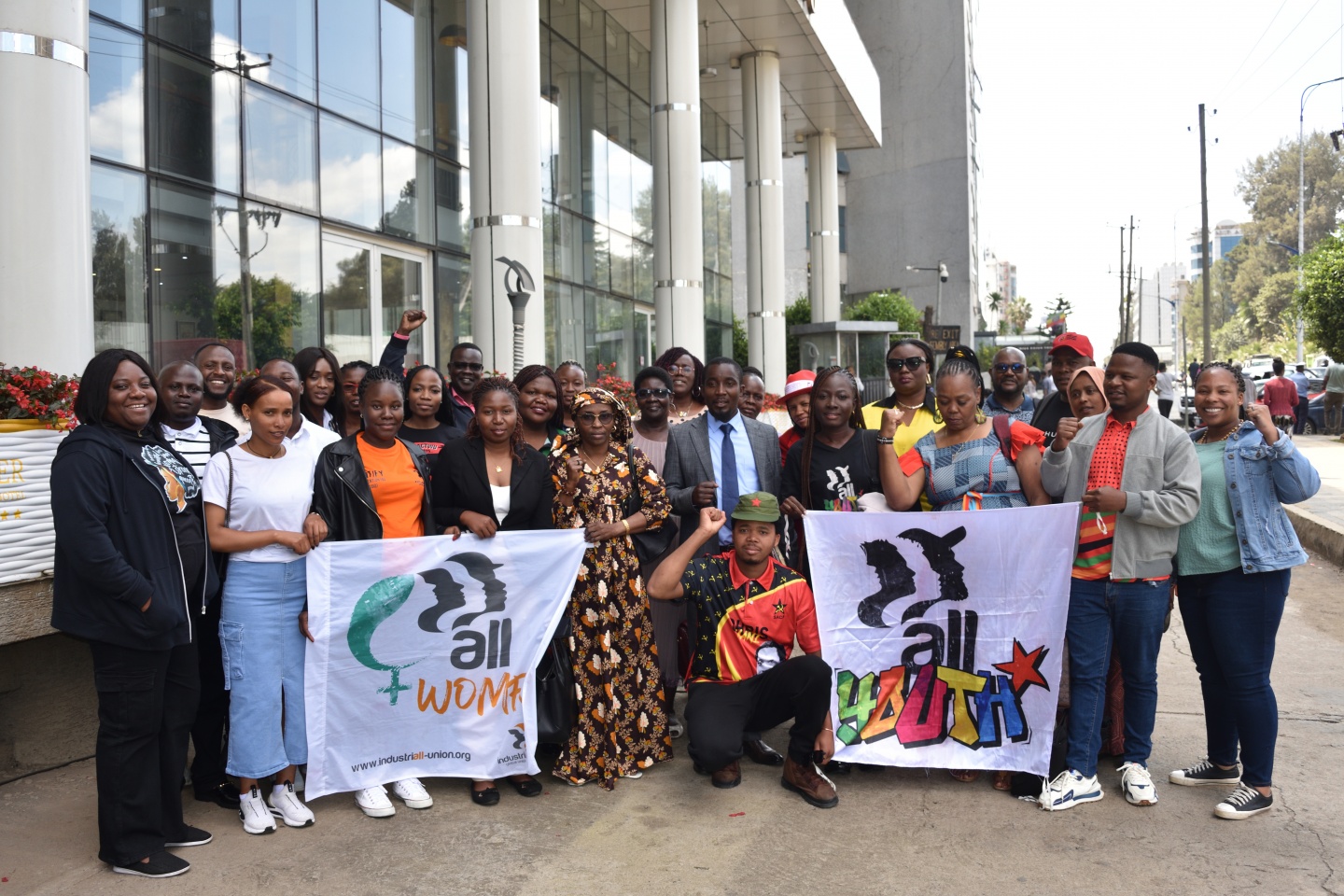
Elena Perez Celis
Nov 10, 2024
The recent Human Rights Due Diligence and African Industrialisation Conference held in Addis Ababa, Ethiopia, on 23–24 October highlighted the importance of protecting workers’ rights and human rights to drive Africa’s economic growth. Organised by IndustriALL’s Sub-Saharan Africa region and supported by the Danish trade union 3F, the conference gathered 72 participants from 18 African countries, with additional online attendees from Germany, Switzerland, Belgium, and other nations.
The event provided a lead-up to Africa Industrialisation Day on 20 November, with Africa Industrialisation Week scheduled for 25–29 November in Kampala, Uganda. This year’s theme, “Leveraging Artificial Intelligence and Green Industrialisation to Accelerate Africa’s Structural Transformation,” addresses Africa’s need for sustainable, technology-driven growth.
Key discussion topics included the ongoing impact of Africa’s “resource curse” and the challenges it poses to development. According to United Nations agencies and development experts, Africa’s natural wealth has often failed to drive lasting progress, hindered by issues like illicit financial flows, corruption, unfair trade deals, and policies that perpetuate poverty and inequality. The conference explored solutions to turn this resource curse into a driver of positive economic change.
Another major theme was the difficulty facing African trade unions in today’s rapidly changing job market. Advances in technology, automation, and digitalisation are impacting job security and have led to a shift from stable, permanent employment to more uncertain work conditions. Limited internet access across the continent adds to these challenges.
Speakers called for stronger enforcement of labour laws and highlighted the importance of multinational corporations upholding high standards for human rights in their African operations. Ethiopia’s model of industrial parks was noted as an example that other African countries could follow to boost economic development. Participants also discussed the potential for binding due diligence laws to ensure that both multinational and local companies meet their responsibilities. Additionally, there was strong support for gender-sensitive policies and a just transition to renewable energy sources to make industrialisation more sustainable.
Several presenters, including representatives from the Confederation of Ethiopian Trade Unions, ITUC-Africa, and UNDP Africa, emphasised the benefits of regional integration through the African Continental Free Trade Area (AfCFTA). Brendah Phiri-Mundia from the UN Economic Commission for Africa explained how the AfCFTA could support African countries in trading more effectively with each other, enabling local transformation in sectors such as textiles and garments.
Victoria de Mello from the UNDP’s Regional Service Centre for Africa discussed how trade unions could use African Union legal frameworks, such as the African Court on Human and Peoples’ Rights, to strengthen their work. National Action Plans (NAPs) on business and human rights were also highlighted as key tools for unions to work with governments, national human rights institutions, and other influential bodies at the national level.
Germany’s recent due diligence law and its potential effects on African labour standards were introduced by Susanne Stollreiter of FES Ethiopia. This law could play a role in improving labour rights in Africa. Key speakers also called for African trade unions to actively support green industrialisation and energy justice, pointing out that democratic, transparent governance is necessary to hold companies accountable.
Joel Akhator Odigie, General Secretary of ITUC-Africa, encouraged trade unions to adopt a developmental approach to industrialisation and promote renewable energy, particularly solar power. Kemal Özkan, Assistant General Secretary of IndustriALL, stressed the need for cooperation with regional organisations such as the African Union, the African Development Bank, and the AfCFTA to build economic resilience across Africa.
These discussions, ahead of Africa Industrialisation Day and Africa Industrialisation Week, mark an important step towards aligning human rights with sustainable industrialisation and building a stronger African economy.
SOURCE: https://www.industriall-union.org/
☗Muinmos & Africa Due Diligence - ADD™ Partner to Boost Trust in Africa's Financial Sector
☗Africa's fintech sector is booming
☗Africa Beckons Investors: Debunking the Myth of High Risk
☗BRICS Expansion: Africa at the Centre and the Future of Crypto Adoption
☗Boosting Intra-African Trade with Regional Value Chains
☗Ghana’s General Elections: A Pivotal Moment for Democracy and the Economy
☗GABS 2024: Strengthening Germany-Africa Economic Partnerships
☗Nigeria’s Central Bank Raises Interest Rates Again Amid Rising Inflation
☗Sarama Resources Initiates Legal Action Against Burkina Faso Government After Unlawful Withdrawal of Mining Permit
☗Intra-Africa trade: The Key to Africa’s Economic Growth & AfCFTA’s Role
Subscribe to receive our latest posts & updates via email.